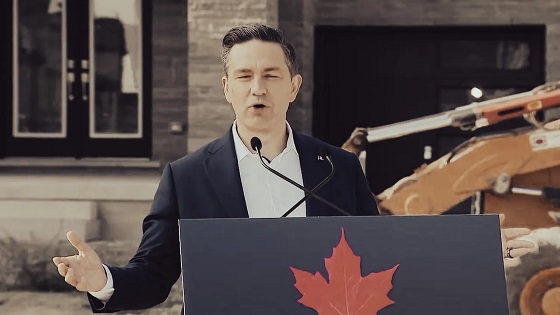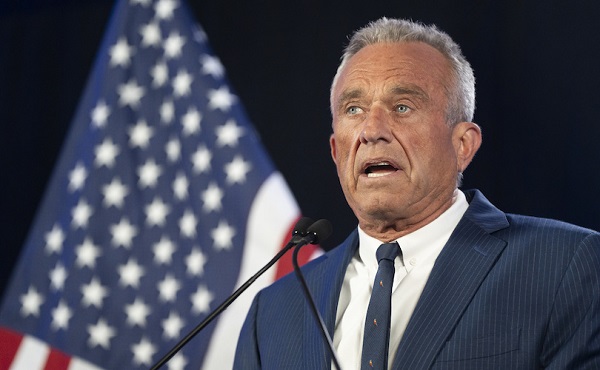Business
Canada deserves a project approval process that is swift by default, not by exception

The 20 projects currently undergoing a federal impact assessment have been in it for an average of 2.8 years
Federal impact assessments should be fair, transparent, and swift for all projects, not just the few favoured by Ottawa under Bill C-5, states the MEI in a new publication released this morning.
“Bill C-5 is a clear admission that the current project approval process is broken,” says Krystle Wittevrongel, director of research at the MEI and author of the report. “Plagued by a lack of predictability, investors have found the process unreliable, and creating a bypass for a few projects favoured by politicians does not fix that.”
In late June, Ottawa passed Bill C-5, an omnibus bill that included the Building Canada Act. The law gives the government the ability to bypass existing legislation in order to fast-track the approval process for projects it deems to be in the national interest.
Under the current assessment process, project approvals have been scarce. Since the Impact Assessment Act was passed in 2019, only a single project—Cedar LNG—has been successful in navigating the process from start to finish.
There are currently 20 projects undergoing this assessment review, 12 of which are in the second phase, five are in the first phase, and three are being assessed under BC’s substitution agreement. Not a single project is in the final stages of assessment.
Over this period, investment in key sectors like energy has declined.
In 2015, the value of projects in Natural Resources Canada’s major projects inventory stood at $711 billion. By 2023, it had dropped to $572 billion.
Adjusted for inflation, Canada should have had $886 billion in planned investments—a $314-billion gap, according to the researcher.
Upstream oil and gas investment was expected to increase by seven per cent in 2024 worldwide.
Since 2022, heads of state from Japan, South Korea, Germany, Poland, and Greece have indicated their interest in Canadian energy.
“If this government wants to get things built, it should overhaul the process to benefit all projects and sectors, rather than having everything hinge on its discretion,” notes Ms. Wittevrongel.
The MEI proposes the following policy recommendations to institute a federal assessment process that is swift by default:
- Set firm deadlines: All projects, not just those deemed in the national interest, should be reviewed within a hard 18-month cap. Politicians should not be able to extend these timelines or suspend the process.
- Respect constitutional limits: Federal assessments should focus strictly on areas of federal jurisdiction in order to reduce scope creep and legal uncertainty.
- Limit the scope of considerations: Avoid overly subjective criteria like impacts based on sex and gender intersections, which risk further complicating and delaying approvals.
- Eliminate duplication: If a province has already completed a rigorous assessment, the federal government should automatically accept its findings.
“Ministerial meddling is no fix for Canada’s protracted and opaque approval process,” concludes Ms. Wittevrongel. “Only a system that is swift by default will draw the investment Canada desperately needs to unlock its full potential.”
The MEI Viewpoint is available here.
* * *
The MEI is an independent public policy think tank with offices in Montreal, Ottawa, and Calgary. Through its publications, media appearances, and advisory services to policymakers, the MEI stimulates public policy debate and reforms based on sound economics and entrepreneurship.
Business
Upcoming federal budget likely to increase—not reduce—policy uncertainty

From the Fraser Institute
By Tegan Hill and Grady Munro
The government is opening the door to cronyism, favouritism and potentially outright corruption
In the midst of budget consultations, the Carney government hopes its upcoming fall budget will provide “certainty” to investors. While Canada desperately needs to attract more investment, the government’s plan thus far may actually make Canada less attractive to investors.
Canada faces serious economic challenges. In recent years, the economy (measured on an inflation-adjusted per-person basis) has grown at its slowest rate since the Great Depression. And living standards have hardly improved over the last decade.
At the heart of this economic stagnation is a collapse in business investment, which is necessary to equip Canadian workers with the tools and technology to produce more and provide higher quality goods and services. Indeed, from 2014 to 2022, inflation-adjusted business investment (excluding residential construction) per worker in Canada declined (on average) by 2.3 per cent annually. For perspective, business investment per worker increased (on average) by 2.8 per cent annually from 2000 to 2014.
While there are many factors that contribute to this decline, uncertainty around government policy and regulation is certainly one. For example, investors surveyed in both the mining and energy sectors consistently highlight policy and regulatory uncertainty as a key factor that deters investment. And investors indicate that uncertainty on regulations is higher in Canadian provinces than in U.S. states, which can lead to future declines in economic growth and employment. Given this, the Carney government is right to try and provide greater certainty for investors.
But the upcoming federal budget will likely do the exact opposite.
According to Liberal MPs involved in the budget consultation process, the budget will expand on themes laid out in the recently-passed Building Canada Act (a.k.a. Bill C-5), while also putting new rules into place that signal where the government wants investment to be focused.
This is the wrong approach. Bill C-5 is intended to help improve regulatory certainty by speeding up the approval process for projects that cabinet deems to be in the “national interest” while also allowing cabinet to override existing laws, regulations and guidelines to facilitate such projects. In other words, the legislation gives cabinet the power to pick winners and losers based on vague criteria and priorities rather than reducing the regulatory burden for all businesses.
Put simply, the government is opening the door to cronyism, favouritism and potentially outright corruption. This won’t improve certainty; it will instead introduce further ambiguity into the system and make Canada even less attractive to investment.
In addition to the regulatory side, the budget will likely deter investment by projecting massive deficits in the coming years and adding considerably to federal debt. In fact, based on the government’s election platform, the government planned to run deficits totalling $224.8 billion over the next four years—and that’s before the government pledged tens of billions more in additional defence spending.
A growing debt burden can deter investment in two ways. First, when governments run deficits they increase demand for borrowing by competing with the private sector for resources. This can raise interest rates for the government and private sector alike, which lowers the amount of private investment into the economy. Second, a rising debt burden raises the risk that governments will need to increase taxes in the future to pay off debt or finance their growing interest payments. The threat of higher taxes, which would reduce returns on investment, can deter businesses from investing in Canada today.
Much is riding on the Carney government’s upcoming budget, which will set the tone for federal policy over the coming years. To attract greater investment and help address Canada’s economic challenges, the government should provide greater certainty for businesses. That means reining in spending, massive deficits and reducing the regulatory burden for all businesses—not more of the same.
Business
Poilievre: “Carney More Irresponsible Than Trudeau” as Housing, Jobs, and Energy Failures Mount

50,000 lost manufacturing jobs, 86,000 more unemployed, soaring housing costs, and blocking every LNG project while vowing to end the TFW program
Pierre Poilievre opened his press conference with a direct attack on Mark Carney and the Liberal record on housing, framing the crisis as the product of government mismanagement rather than market forces.
He began by pointing to Conservative MP Scott Aitchison, a former mayor, as an example of what can be done when local leaders “cut the taxes and the development charges and the wait times so that building can happen.” Then came the pivot: “What a contrast with Justin Trudeau — excuse me, with Mark Carney,” he said, before slamming Carney’s choice of Gregor Robertson as housing minister. Robertson, he reminded the crowd, presided over a 149% increase in Vancouver housing costs and more than doubled homebuilding taxes. Carney, Poilievre said, rewarded that record by handing him the national housing file.
The setting itself — Deco Homes, a family-run builder founded by Italian immigrants — was chosen deliberately. Poilievre praised the Gasper family for their role in building Canada’s homes and businesses, but then asked whether such families could do the same today. His answer was no. “After a decade of Liberal taxes, Liberal spending, out-of-control Liberal immigration, reckless crime policies… the Canadian promise is really broken.”
From there, he broadened the attack. He spoke of an entire generation priced out of homeownership, of immigration growing “three times faster than housing and jobs,” of crime rising, and of what he called “the worst economy in the G7.” And then he turned squarely on Carney: “Mr. Carney is actually more irresponsible than even Justin Trudeau was,” citing an 8% increase in government spending, 37% more for consultants, and 62 billion dollars in lost investment — the largest outflow in Canadian history, according to the National Bank.
The message was simple: Liberals talk, Conservatives build. Poilievre painted Carney as a man of speeches and promises, not results. “The mistake the media is making is they’re judging him by his words rather than his deeds,” he said.
It was an opening statement designed less to introduce policy — those details came later — and more to frame the battle. For Poilievre, Carney isn’t just Trudeau’s replacement. He’s Trudeau’s sequel, and in some ways worse.
During the Q and A portion of the presser; Pierre Poilievre was pressed on immigration today, and what he said was blunt. Canada, he argued, once had the “envy of the world” system: immigrants came in at numbers the country could absorb. There were jobs, housing, health care. Everyone integrated. Ten years later? He says the Liberals have destroyed that.
The facts he used were stark. According to Poilievre, Canada is bringing in people three times faster than homes and jobs are being created. He accused the government of allowing “massive abuses” of the international student program, the Temporary Foreign Worker program, and asylum claims, with what he called “rampant fraud” right under Ottawa’s nose.
He tied this directly to the economy: youth unemployment, he said, is the worst in three decades. At the same time, employers are importing more temporary foreign workers than ever, this year at a record high and using them for cheap labor under poor conditions. His line: “While our young people can’t find jobs, employers are able to exploit temporary foreign workers by giving them lower wages and terrible working conditions.”
But here’s the part that stands out politically. Poilievre said, “Immigrants are not to blame.” He put the responsibility squarely on Liberal governments, calling their immigration numbers “reckless and irresponsible.”
His fix? End the Temporary Foreign Worker program. Cut immigration levels back to “the right numbers and the right people” to fill jobs Canadians can’t do. Tighten border standards to keep criminals out. And, in his words, “always and everywhere put Canada first.”
Pierre Poilievre didn’t hold back when asked about Mark Carney’s record. His words: “Mr. Carney is actually more irresponsible than even Justin Trudeau was.” That’s not a throwaway line, he backed it with numbers.
According to Poilievre, Carney inherited what he called a “morbidly obese government” from Trudeau and made it worse: 8% bigger overall, 37% more for consultants, and 6% more bureaucracy. He says Carney’s deficit is set to be even larger than Trudeau’s.
Then the jobs number: 86,000 more unemployed people under Carney than under Trudeau. That, Poilievre argued, is the real measure, not the polished speeches Carney gives. His line: “The mistake the media is making is they’re judging him by his words rather than his deeds.”
He also went after Carney for what hasn’t happened: “He has not approved a single major national project.” Meanwhile, Poilievre says food price inflation is even worse today, crime policy hasn’t changed the same “catch and release” approach and every big promise Carney made has already been broken.
Pierre Poilievre was asked about Ukraine, and his answer wasn’t about speeches or handshakes in Brussels. It was about pipelines.
“The best way to put Canada first while helping Ukraine is to sell our oil and gas in Europe.” His argument: Vladimir Putin bankrolls his war because Europe still buys his fuel. Poilievre said if Canada had built the Energy East pipeline, we’d be shipping a million barrels of oil a day to Europe right now.
He went further: approve LNG plants immediately, liquefy tens of billions of dollars of Canadian gas, and ship it overseas to “fully displace” Russian sales. His line: “Instead of the money going to Putin’s war machine, it will go to the trades workers in this country.”
And then the indictment of the Liberals: “Mark Carney and the Liberals have blocked every single LNG project that has been put before them. As a result, we only have one plant and it was approved by Stephen Harper.”
So the contrast is stark. Carney talks about climate virtue. Poilievre says: build pipelines, sell fuel, kill Putin’s war economy, and pay Canadian workers. His closer: “That is how you put Canada first.”
Final Thoughts
So let’s just be honest. Under Mark Carney’s leadership, the numbers aren’t just bad they’re devastating. In a matter of months, Canada has lost 50,000 manufacturing jobs. These are not low-skill jobs; they are the backbone of the economy, the kind of work that built the middle class in this country. Add to that another 86,000 unemployed overall compared to when he took office. This is what Carney calls stability.
Now, if you’re a Temporary Foreign Worker, life looks pretty good. Ottawa has built an entire system around you cheap wages, little recourse, and companies happy to import you as disposable labor. If you’re a Carney insider, it looks even better. The government is 8% bigger than when Trudeau left, consultants are raking in 37% more, the bureaucracy is swelling. It’s one of the greatest insider rackets in modern Canadian politics.
But if you’re part of Canada’s middle class, if you’re a young person trying to buy a home, if you’re a worker trying to hold onto a job in a plant, a mill, or a construction site you are being hollowed out. You’re watching your wages stagnate, your housing costs explode, your jobs disappear overseas or into government-mandated “green transitions.” And when you ask for answers, what do you get? You get Patty Hajdu telling you not to be afraid of robots. You get Mark Carney telling you his deficits are “investments.” You get speeches about “climate virtue” and “AI literacy” while your livelihood collapses.
That’s the contrast Poilievre is trying to draw. On immigration, he says: let’s end the Temporary Foreign Worker scam, bring people in at a pace we can actually house and employ, and put Canadian workers first. On energy, he says: build the pipelines, approve the LNG projects, and stop funding Putin’s war by leaving Europe dependent on Russian fuel. On the economy, he says: stop measuring success by the size of government or the smoothness of a prime minister’s speeches, and start measuring it by the number of Canadians who can work, buy homes, and raise families in their own country.
So the choice is simple. Carney offers more of the same consultants, insiders, deficits, slogans, and the slow managed decline of a once-prosperous nation. Poilievre is offering something completely different: a chance to reverse the hollowing out of the middle class and to put Canadian jobs, Canadian energy, and Canadian sovereignty first.
If you’re an insider, Carney’s Canada works just fine. If you’re a middle-class Canadian, it’s a disaster. And that, in the end, is the dividing line in this country.
Subscribe to The Opposition with Dan Knight .
For the full experience, upgrade your subscription.
-

 Alberta1 day ago
Alberta1 day agoAlberta deserves a police force that actually reflects its values
-

 Crime21 hours ago
Crime21 hours agoFormer NYPD Inspector Breaks Down How Charlie Kirk’s Shooter Will Be Caught
-

 Alberta1 day ago
Alberta1 day agoOPEC+ chooses market share over stability, and Canada will pay
-

 Bruce Dowbiggin1 day ago
Bruce Dowbiggin1 day agoKirk’s Killing: Which Side Can Count on the Military’s Loyalty Now?
-

 Crime1 day ago
Crime1 day agoFBI offering $100,000 reward for information leading to arrest of Charlie Kirk Assassin
-

 International2 days ago
International2 days agoA social media crackdown sparked the revolution but government corruption set Nepal’s youth on fire
-

 Censorship Industrial Complex1 day ago
Censorship Industrial Complex1 day agoUK’s top cop wants to ‘stop policing tweets’: report
-

 Crime21 hours ago
Crime21 hours agoSurveillance video shows Charlie Kirk’s killer slipping away moments after shooting














